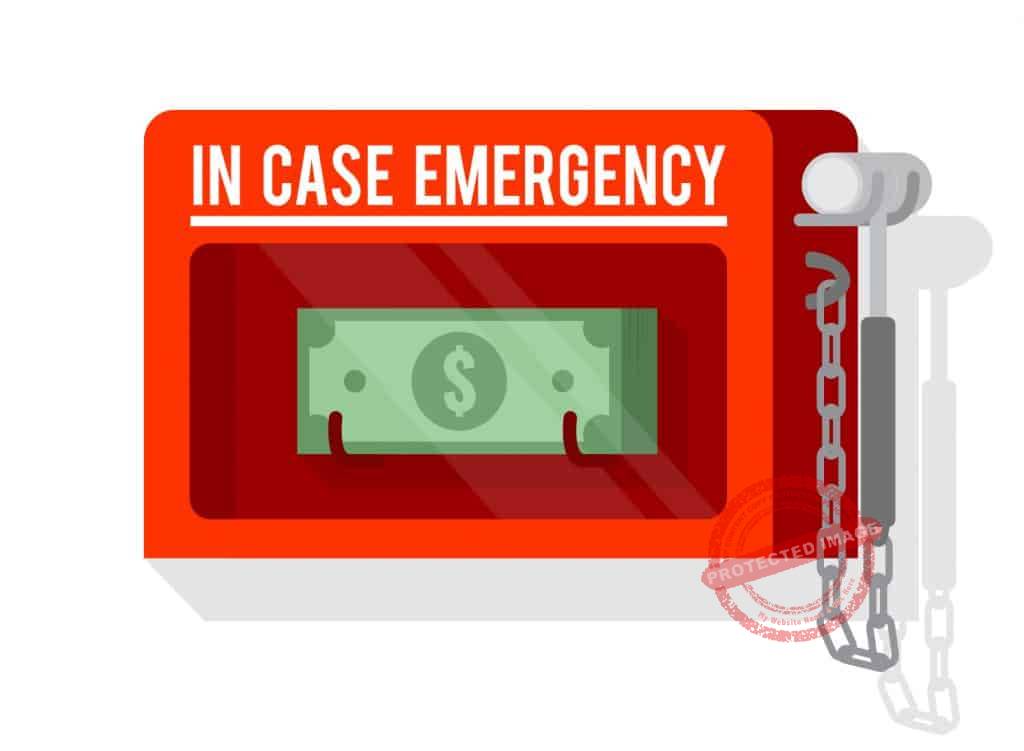Do you know there are certain financial habits for success in business? Probably you are hearing this for the first time. Nonetheless, one important thing you should keep in mind is, working towards the financial stability of a business isn’t always an easy task.
At times you will feel like you’re walking on a tight rope.
But you need to be consistent and disciplined, yet, open-minded and flexible all at the same time.
In this post, we will go over the most important money habits for entrepreneurs.
The financial habits for success in business will set you on the right track and help you avoid pain in the future.
Financial Habits That Will Help You Succeed
#1–Be Creative When You Build Your Network

You may have heard this a lot, but it is worth repeating—keep building your network.
But you don’t just build your network by going to business retreats, collaboration events, or even during cocktail parties.
Sometimes, you have to do some implied networking.
Now, what does that mean?
Sometimes that means cutting great deals with clients.
It creates a relationship with them and some relationships will help your business to grow.
This is one of the secrets on how to have financial success as an entrepreneur.
Some clients are just customers, of course.
Which means they are there just to bring business.
However, there are clients who can be converted into potential business partners.
Look out for these, this way you are crafting customer loyalty as well as long term partnerships.
These partnerships might come in useful in helping your business get access to finance in the future.
They might be willing to provide funding, pay upfront and cushion your business financially in other ways.
#2–Know, Understand And Deal With Your Liabilities And Obligations

Every business will have a financial liability at one point or another.
It can be a debt that you have to pay but it can be any form of the financial obligation that needs to be met like clients asking for refunds etc.
A smart entrepreneur is one that understands that they can be sued if liabilities aren’t met.
The goal is to get yourself out of financial and legal hot water before you get proverbially thrown in there.
This is one of the critical habits on how to manage business finances.
Remember that there will be times when your business will encounter difficulties—and that happens even to the best of us.
Every time you hit a bump in the road you should understand what you have gotten yourself into.
It is also imperative that you get yourself out the soonest possible time.
Plan ahead for your financial obligations and make active plans to fulfil them.
#3– Learn From Small Financial Risks

Entrepreneurs are risk-takers.
They understand that there is always risk involved in any sort of business.
However, risks can be managed and there are plenty of ways for one to adapt.
This is another essential skill to learn in managing business finance.
An entrepreneur must learn to scale things down before he can scale things up.
For instance, when it comes to product development, one can create a scaled product that can be used to test the market’s response—to see if it can generate customer interest.
That way you are limiting the amount of risk.
You are minimizing your risk, thereby managing it.
You take a small financial risk but the lessons you will learn from that is immense.
#4–Understand Your Cashflow Dynamics

This is probably one of the fundamentals of managing business finance.
Even if everything looks great—you have new customers coming in and you think the business is growing.
But this can be an illusionary trap.
Check actively to see if you have enough positive cashflow.
You may see increases in sales but does that generate enough Return On Investment?
You must make sure that you can make enough positive cashflow to cover your expenses as long as it takes until you see profit coming in.
Remember that in any enterprise, as the adage goes, cashflow is king.
Your cashflow needs to be more positive than negative.
An increase in sales won’t matter if your expenditure is a lot bigger.
#5–Spend Small First

Next on our list of business finance tips is to spend small at first.
You may need to ask yourself the following questions:
- Do you really need new chairs in the office or will the old ones you have work just fine?
- Do you spend on a brand spanking new top of the line laptop or do you just use your old computer?
- Should you buy refurbished equipment or brand new?
This is because when you’re working with a small budding enterprise you should be careful how and where you spend your money.

Find ways to reduce the cost, even if it means using old equipment that works fine for the time being then so be it.
Remember that the really successful entrepreneurs didn’t begin their businesses by spending a fortune on luxury items.
They worked with what they had and concentrated on the necessities of the business first.
#6–Apply Financial Delegation

One of the fundamental financial practices is applying financial delegation.
Everyone knows that you can’t do everything in your enterprise.
When people talk about delegation they usually see it from a task-oriented point of view.
But some people also see what is called financial delegation as the money and cost aspect of delegating tasks and responsibilities.
No, this doesn’t just mean you should hire an accountant or a financial manager (but yes, you should get a financial manager—more of that later).
What financial delegation means is weighing the value of your time versus the cost necessary to solve a problem or to perform a task.

Let’s say the company car broke down.
Sure you have great mechanical and DIY skills, you can fix it.
However, determine how much it costs to hire a mechanic to fix the car?
Then you compare that to the amount of money that you can make if you delegated that task and used that time to create opportunities for your business to make money.
In many instances, you will notice that if you delegate the task to someone else, the cost of hiring that person you delegated to is only a fraction compared to the total amount your time is worth doing something else for your business.
Understanding financial delegation is one of the important money habits for entrepreneurs.
#7–Let The Market Decide

There is this old saying that the market is never wrong.
That premise is still true today in the digital era.
Here’s another rule of thumb that goes in tandem with that saying.
Let the market be the acid test of every business idea.
This is one of the good financial habits that you should never take for granted.
Sometimes entrepreneurs get so excited about the earning potential of an idea.
They do the math and they immediately judge from the numbers that this or that idea is either profitable or not.

That should not be the basis of your decision.
Before you use a significant amount of capital on that business idea, it should first be financially validated by the market before you go for it.
Do your market research.
Check if it is financially viable first, and never let your ego get ahead of what the market is saying.
#8—Get A Financial Manager And Learn From Expert Advice

Next on our business finance tips is hiring a highly skilled finance manager.
Wrongly invested capital, as well as bad financial decisions, are very costly.
They can be so costly and can make your business bankrupt.
That is why an effective financial manager is crucial.
Consider this manager as a resource person on how to manage business finances.
This is because as an entrepreneur, you are not expected to know everything.

But you are expected to take advantage of the expertise of other people who can work with you to make your business work.
A financial manager can approach your enterprise’s financial situation with an unbiased and non-emotionally charged point of view.
They can apply strict economic and accounting-based management.
They will speak numbers and will bluntly tell you what the numbers are telling and you can bet your bottom dollar that the math doesn’t lie.
#9–Periodic Financial Statement Analysis

Analyzing your company’s financial statements is one of the fundamental financial practices that you should be doing as an entrepreneur.
Consider your company’s financial statements as the record of its overall health.
Again, your financial manager can be a big help at this point if you don’t know how to do it yourself yet.
The crucial thing here is not just to know that your enterprise is doing great.
You should compare your company’s performance to its performance from a year ago, from the previous quarter, and compare to the performance of your competitors.
#10–Get An Emergency Fund Ready

An emergency fund is an important tool in small business finance.
Think of it as a parachute that you can use to bail yourself out in case things go wrong and totally out of your control.
How big should your emergency fund be?
It will be different for each company depending on its activity and size of the enterprise.
It is typical for businesses to create a reserve fund equal to 3 months of its operating expenses.
That is an entire quarter’s worth of operating costs.
Some companies make it a full 6 months.
This will be different for each business and you get to decide how large your emergency fund should be.
#11–Financial Ratio Analysis

The analysis of your financial ratios should be performed on a periodic basis.
This will help you get a clear picture of the health of the finances of your company.
This is also one of the ways you can enhance the different economic aspects of your enterprise.
Examples of ratio analysis reports will include the financial autonomy of the business, debt ratio, cash flow generation, and profitability.
#12–Understand Financing Options Available To You

Don’t be afraid of going into debt or taking a loan.
Some people may feel bad or maybe afraid to apply for a loan because they think that a loan is a big negative on you as an entrepreneur.
There are actually good debts and bad debts.
A much-needed loan that will help your business go through with its operations is more of a lifeline than a bad debt that you incur.
Think of them as tools that you can use to extend your cashflow and of course to finance your company.

In fact, you need to educate yourself regarding the financing tools that will allow you to make your business grow and add more investments.
You should have a solid understanding of your company’s financial information.
That is why habits 9 and 11 are essential in understanding finances for small businesses.
Understanding the financial reports of your business will reflect on your loan application when you request a loan from financial entities.
#13–Frugality = Discipline

Frugality is next on our list of financial habits for success in business.
Being frugal doesn’t mean you are being cheap or you’re stingy.
It actually reflects the level of discipline that you are practicing.
Being frugal also means you create a budget and are committed to staying within that budget.
When you are being frugal it shows that you are committed to saving money.
It also creates a feeling of being content with what you have.
A lot of entrepreneurs highlight this habit as one of their keys on how to have financial success.
#14–Learn To Track Your Expenses

Every expense you make in your enterprise should be accounted for.
It should be reflected in your books.
Successful entrepreneurs account for every bit that they spend their money on both for personal and business expenses.
If you are able to tell where your capital is going then you can better manage your negative cashflow.
You can identify cost areas and find out where and how you can reduce costs and expenditures.
Identifying where your money goes can also help you identify unhealthy spending habits and unnecessary expenditures.
Remember that the goal here is to save funds where you can.
Why?
Because every bit of money you save is money you earn.
It’s these simple financial habits for success in business that will help to grow your enterprise.
#15–Put Priorities In Your Spending

Remember that money is a tool and you should use your tools wisely.
After tracking your expenses you can then identify which areas need your financial attention.
You can tell why you have to spend money on a particular expense category and which one should take precedence over the other.
Financial Habits That You Should Avoid For Success In Business

In this next section, we will go over the bad money habits that you should avoid.
It is unfortunate that there are entrepreneurs who carry these habits with them in their businesses and more often than not they tend to spell disaster.
#1–Relying On Borrowed Money

We mentioned earlier that there are good debts and bad debts.
Well, using borrowed money is fine when you do it from time to time.
However, if you rely on that money for the typical day to day operations then that speaks volumes regarding the condition of your enterprise.
If you are usually low on cash, then you need to monitor your expenses and prioritize your spending.
These are the good habits in 14 and 15 above.
#2–Letting Your Emotions Dictate Your Spending

Impulsive buying is a bad financial habit if you wish to achieve success in your business.
Sometimes you get hooked by the marketing tactics of fellow enterprising people.
You can’t blame them as they’re out to make money just like you, right?
However, remember that emotional purchases can quickly throw you out of your budget.
It takes discipline to be frugal and stay work within your budget allowance.
If you see something that you think your business needs then think about it several times.
You may even have to sleep on it. Y
ou may even want to consider applying the principle of delayed gratification or deferred gratification.
Delayed gratification consists of resisting the temptation to satisfy the need (or want) for an immediate reward in order to get a bigger reward that is more enduring and ultimately more gratifying later.
#3–Inaccurate Budgets

Not having a budget is already bad but something that is equally as bad is an inaccurate one.
That means you are unsure of how much money is coming and how much money is going out.
It can lead to a false sense of security and an inaccurate picture of the financial health of your business.
#4–Never Planning For Big Expenses

Big expenses will come such as repairs of your equipment, moving to a new office, etc.
If you fail to plan for these expenses you might find yourself strapped for cash when you need it the most.
#5—Paying For Unused Or Rarely Used Services
There is really no point in paying for a service that you rarely or never really use.
It’s just a financial leak that you should plug ASAP.
#6–Not Paying Yourself

Paying yourself a salary needs to be part of your business financial planning.
As an entrepreneur, you will most likely still have personal expenses that you will need to account for.
It is easy to put 110% into the business and try and cover your personal expenses using loans and credit cards.
This only digs a bigger financial hole for you.
Pay yourself at least something that helps you cover your personal expenses.
When your business makes money you can consider paying yourself remuneration that matches the value you bring to the company.
That wraps up our dos and don’ts when it comes to financial habits for success in business.
Do you know of any other habits (both good and bad) that we missed?
Give us your thoughts in the comments section.
Click on Buy Now For a PDF Version of This Blog Post
 |










